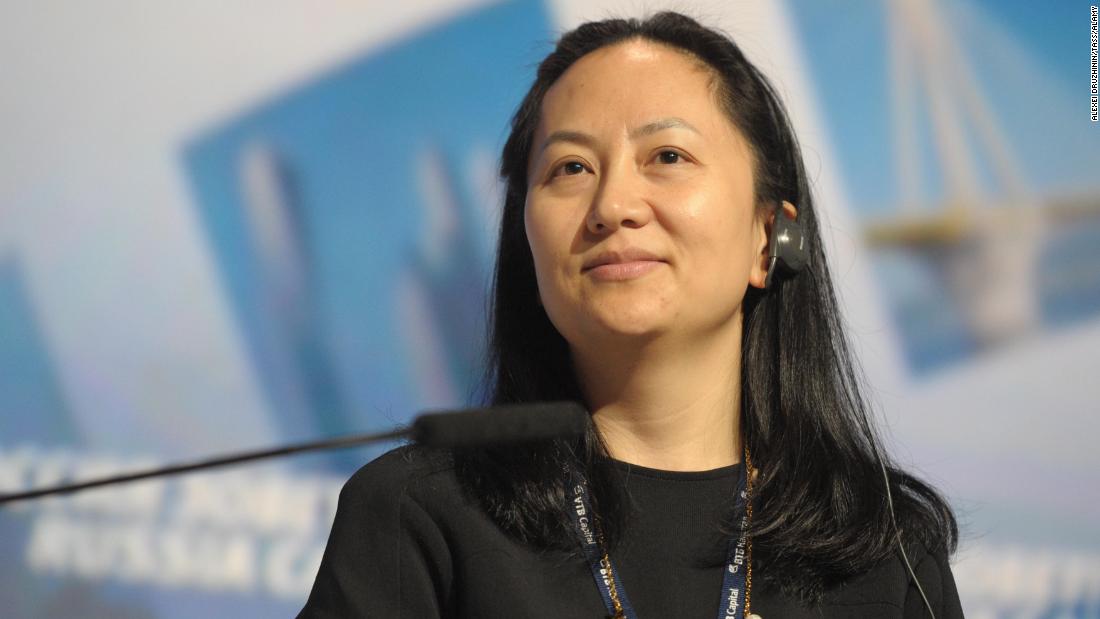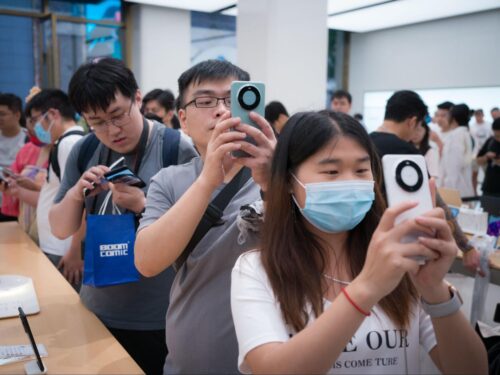One Huawei scion arrested in Canada, another waltzes in Paris

Mèng Wǎnzhōu 孟晚舟, chief financial officer of Huawei, was arrested on Saturday in Vancouver. Some reports say it was at the request of the U.S. Justice Department for alleged violations of Iran sanctions. In April this year, it was first reported that the U.S. government was investigating Huawei for sanctions violations.
Meng is the daughter of the company’s secretive founder, Rén Zhèngfēi 任正非. She has used the name Cathy Meng in the past, but now uses Sabrina for her English name. In an odd coincidence, another of Ren’s daughters, who goes by the name Annabel Yao, is featured in today’s South China Morning Post as the belle of Le Bal des Débutantes in Paris this year.
In a piece with more details on both daughters, Reuters says Meng, 46, “had been widely tipped to one day take the helm of the tech giant her father founded.”
- A bail hearing for Meng been set for Friday, reports the Vancouver Star. “As there is a publication ban in effect, we cannot provide any further detail at this time… The ban was sought by Ms. Meng,” said a Canadian Justice Department spokesperson.
- China’s embassy in Canada released a statement:
At the request of the U.S. side, the Canadian side arrested a Chinese citizen not violating any American or Canadian law. The Chinese side firmly opposes and strongly protests over such kind of actions which seriously harmed the human rights of the victim. The Chinese side has lodged stern representations with the U.S. and Canadian side, and urged them to immediately correct the wrongdoing and restore the personal freedom of Ms. Meng Wanzhou. We will closely follow the development of the issue and take all measures to resolutely protect the legitimate rights and interests of Chinese citizens.
- The People’s Daily has also weighed in: “Under the official account of the Embassy of Canada to China, a large number of internet users questioned whether Canada has gone from being a sovereign state to ‘America’s hired thug.’”
- “I am shocked. The U.S. can’t beat Huawei in the market. Don’t act like a despicable rogue.” Thus tweeted Hú Xījìn 胡锡进, editor of nationalistic rag the Global Times.
- “My jaw dropped when I saw this news,” said China business veteran (and occasional The China Project contributor) James McGregor to the Washington Post: “This is so different from anything we’ve seen before. Serious legal action taken with political timing.”
- “Most folks in my WeChat groups of educated professionals believe arrest of Huawei exec Meng Wanzhou crosses a line, [and they make the] good point that any [American] exec of companies selling weapons to Taiwan would be breaking Chinese law,” tweeted UC San Diego professor Victor Shih. Several knowledgeable people tweeted fears about American executives in China.
- “So the arrest of the daughter of the founder of Huawei is shocking but not entirely surprising,” tweeted Carlos Tejada, Asia business editor of the New York Times. Apparently, a previous American investigation found that ZTE had sought to emulate Huawei’s dodging of U.S. sanctions.
What does Meng’s arrest mean for the U.S.-China trade and tech war? On Supchina, Eurasia Group’s Paul Triolo writes:
Huawei is a much bigger fish globally than ZTE, the Chinese telecom giant that the U.S. government punished for violating Iran sanctions early this year before Trump changed his mind. Showing leniency to Huawei now seems almost like a prerequisite for a successful outcome to the trade talks, but would Trump be willing to deal with the blowback from flip-flopping again?
Further background:
“For many years, the fog of distrust surrounding Huawei was a problem that was largely confined to the United States,” says the New York Times (porous paywall), but suspicion of the company has spread: “China sees the company as a pivotal driver of its ambitions for global technological leadership. Increasingly, much of the rest of the world sees it as a potential conduit for espionage and sabotage.”
“Huawei’s no good, very bad year just got even worse” is how CNN summarized a year of setbacks for the company:
- January: Hopes that AT&T would sell Huawei smartphones in the United States were crushed.
- February: U.S. intelligence agencies said that American citizens shouldn’t use Huawei phones.
- March: Best Buy, one of the few places where Americans could find Huawei devices, announced it would stop selling them.
- August: Australia blocked Huawei from providing 5G equipment for the country’s wireless networks.
- November: The Wall Street Journal reported that the U.S. government had “initiated an extraordinary outreach campaign to foreign allies, trying to persuade wireless and internet providers in these countries to avoid telecommunications equipment from China’s Huawei Technologies Co.”
- Last week, New Zealand blocked a top telecom firm from using Huawei equipment for its 5G mobile network.
- On Wednesday, U.K. telecom group BT said it would not buy equipment from Huawei for the core of its next-generation wireless network.
Finally, CNN reporter Jake Tapper tweeted that “the view among some Trump administration officials” is that Meng “could be used as leverage with China in trade talks.” Prominent China commentator Patrick Chovanec responded:
If she broke the law, she should be arrested and tried. But it’s disgusting for the White House to talk about her as a ransom hostage.
It’s also very dangerous, for Americans living and working in China.
For more on the case:
- Bloomberg has a profile of Meng (porous paywall).
- China Media Project looks at (the lack of) media coverage, as well as social media discussion and censorship of the story in China.
- The South China Morning Post says “Washington may use the case to pressure Beijing” in trade war talks.
- Reuters has an explainer on Huawei and why it generates so much controversy.
- The cheesy music might kill you, but here is a video profile (in Chinese) of the other daughter, Annabel Yao.






